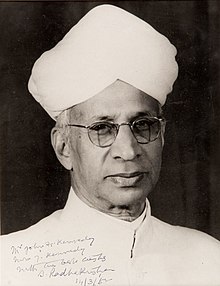Portal:Religion
The Religion Portal
Religion is a range of social-cultural systems, including designated behaviors and practices, morals, beliefs, worldviews, texts, sanctified places, prophecies, ethics, or organizations, that generally relate humanity to supernatural, transcendental, and spiritual elements—although there is no scholarly consensus over what precisely constitutes a religion. Different religions may or may not contain various elements ranging from the divine, sacredness, faith, and a supernatural being or beings. (Full article...)
 Vital article
Vital article

The afterlife or life after death is a purported existence in which the essential part of an individual's stream of consciousness or identity continues to exist after the death of their physical body. The surviving essential aspect varies between belief systems; it may be some partial element, or the entire soul or spirit, which carries with it one's personal identity. (Full article...)
 Did you know (auto-generated)
Did you know (auto-generated)
- ... that Freedom of Religion South Africa filed an unsuccessful lawsuit to keep child spanking legal?
- ... that the Grave with the Hands commemorates a married couple, divided by society and religion, with hands clasped over a cemetery wall after death?
- ... that Catherine de Parthenay, a 16th-century Huguenot leader, was a member of "a highly successful network of information" during the French Wars of Religion?
- ... that religious studies scholar C. Jouco Bleeker believed that religions are like acorns?
- ... that Gamaliel's principle has been used to support religious pluralism and reforms within religious groups?
- ... that Musa va 'Uj depicts figures from all three Abrahamic religions?
Intelligent design (ID) is a pseudoscientific argument for the existence of God, presented by its proponents as "an evidence-based scientific theory about life's origins". Proponents claim that "certain features of the universe and of living things are best explained by an intelligent cause, not an undirected process such as natural selection." ID is a form of creationism that lacks empirical support and offers no testable or tenable hypotheses, and is therefore not science. The leading proponents of ID are associated with the Discovery Institute, a Christian, politically conservative think tank based in the United States. (Full article...)












































![Image 1 Prometheus tortured by the eagle (black-figure kylix, 560-550 BC) In Greek mythology, Prometheus (/prəˈmiːθiəs/; Ancient Greek: Προμηθεύς, [promɛːtʰéu̯s], possibly meaning "forethought") is one of the Titans and a god of fire. Prometheus is best known for defying the Olympian gods by taking fire from them and giving it to humanity in the form of technology, knowledge and, more generally, civilization. (Full article...)](http://upload.wikimedia.org/wikipedia/en/d/d2/Blank.png)





















